by Abby Koch–Morningside Student Government held an election debate for the president position Sunday, Feb. 14, for three candidates: Collin Adank, Garrett Anderson, and Garrett Arbuckle. Along with convincing the audience of their qualifications, much of the debate centered on internal issues and communication.
A majority of the seating in the Yockey Room was filled despite the journey to get there being freezing cold. Zoom was also a popular option for many students Professor Greg Guelcher was the moderator for the debate.
The debate started with the candidates’ personal beliefs of what the most important responsibility of the student government president is. Anderson stated operating the day–to–day duties was his top priority. “The president takes a big part in dealing with the parliamentary procedure and making sure everybody gets an exchange of those ideas. I would say the student body president’s most important job is just going to the meeting and making sure that we legislate for the people,” said Anderson.
Adank’s opening remarks on key president qualities would remain constant the rest of the debate: positivity and leading by example. “Increasing student engagement, positivity within student government, increasing respectful debate and things like that have to come first from the student body president,” said Adank.
Arbuckle believes student government president is a voice for all and the president will need to work with a number of opinions. “The student body president needs to be someone who has strong leadership skills to advocate and be the voice of all students and to represent the student body to the best of their ability, regardless of personal ideas and regardless of personal feelings and attitudes,” said Arbuckle.
Arbuckle made the first criticism of the debate against Anderson, stating Anderson is coordinating votes with others before meetings. Anderson denied the statement and said he is just reflecting on what students are saying.
When it came to the subject of what made each the best candidate, all three brought to the table their experience. All have held decision–making positions in groups, both on campus and off. The only one with student government executive position experience is Arbuckle as secretary this year.
Seperately, each made their case on a particular trait that complemented their experience. For Adank, communication was what he highlighted. “Communication is important. That way we don’t find ourselves in any areas of disagreement that could be avoided by communicating thoroughly,” said Adank.
Arbuckle mentioned time management skills were his top trait, pushing the fact he was the only one that showed up that night on time, compared to the other two.
Anderson said he has worked with many different ideals before and he was the “non–establishment candidate.” If elected, Anderson claimed he would be the only one that would bring change. His top priorities were spending funds properly and fixing the structure of student government.
“My top goal is working with DEI, the Diversity, Equity, and Inclusion Committee, as well as the student organizations that are focused on diversity, and the Office of Student Life to make a more welcoming environment on campus,” said Adank. He added he was the only student represented in DEI meetings and had first–hand experience of feeling unwelcome at certain times.
Arbuckle’s goals were focusing on transparency and bridging the gap between student government and student body. He also wants to advocate for international students who have felt like they have no voice.
The censure motion that took place at the Feb. 2 meeting was brought up in the debate when Anderson criticized Arbuckle for stopping the minutes. Arbuckle explained that the minutes were paused due to the feeling Anderson was going in circles about the issue. Anderson stated all he was doing was pushing for a defense for the accused.
Adank explained that he made the censure motion on behalf of the student body. He said he made the motion to show that disrespect will not be tolerated in student government.
Guelcher focused on the negativity within student government and asked how they would address it.
Anderson quickly stated the other two would blame him for it and that the negativity was just a difference in opinion. “I’m the candidate who’s prepared to say let’s stop this right now and remember why we’re here. A big part of where the change is going to come from is who is holding the gavel when it happens,” said Anderson.
Arbuckle said this issue would be met with student-based discussion, knowing the decisions are made to better the lives of students and not personal interest.
Adank said negativity and disrespect would not be tolerated. “That environment that you see inside student government is reflective of what is happening around campus,” said Adank.
The debate helped some students get a better sense of the candidates and their qualifications. “People had a lot of preconceived notions based on what they’ve seen in the minutes and based on what they’ve seen in actions on campus,” said senior Sam Peterson. “I think that we might see some people change, kind of based on what they heard tonight.”
Elections will be sent to student emails starting today and ending Feb. 17. The results will be shared on Friday, Feb. 19.
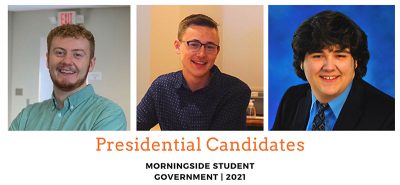

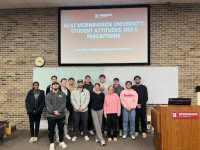
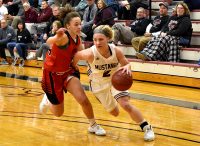
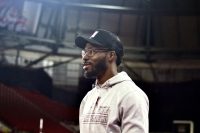
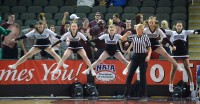
Leave a Reply